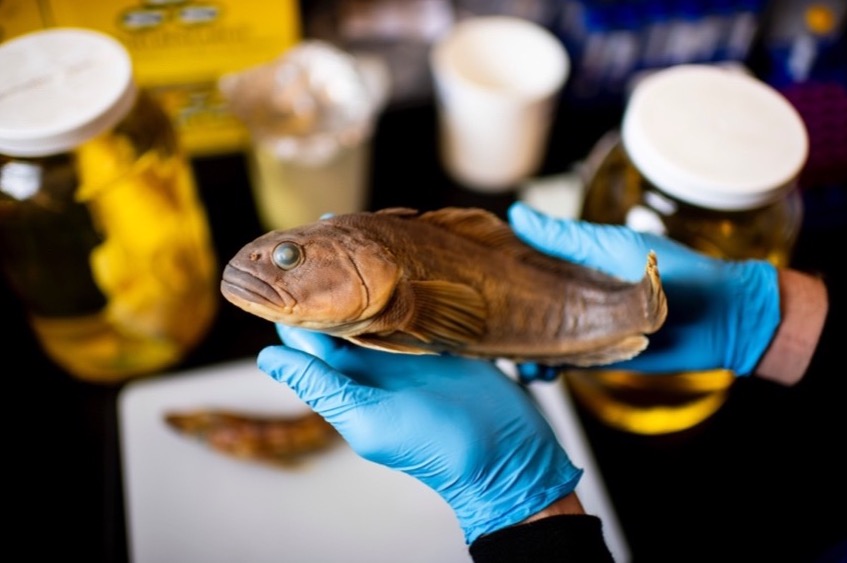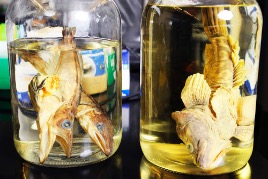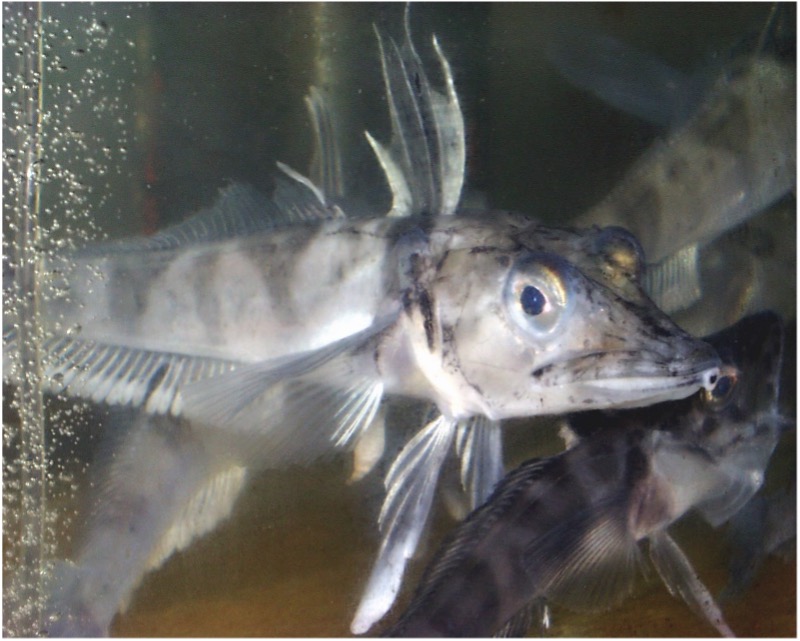We are extremely excited to join Northeastern University’s Professor Bill Detrich, and the National Science Foundation’s Office of Polar Programs, in launching the new Polar Genetic Resource Collection (PGRC) at OGL! This collection will preserve thousands of DNA and tissue samples from fascinating and threatened Antarctic fish and invertebrates.

Preserved specimen of Notothenia coriiceps, or bullhead notothen, a red-blooded Antarctic fish. [Photo credit: Matthew Modoono/Northeastern University]
Thanks to a new award presented to Professor Detrich by the NSF Research Experiences for Undergraduates Program, Detrich and OGL will work together to ensure that his extensive collection of Antarctic fish samples will be available to researchers for generations to come. This NSF funding will support and train multiple undergraduate students as they document and preserve thousands of these precious samples.

Specimens in Professor Bill Detrich’s collection. Left, the white-blooded icefish Neopagetopsis ionah, or Jonah’s icefish. Right, a barbeled plunderfish of the genus Pogonophryne. [Photo credit: Matthew Modoono/Northeastern University]
For more than 35 years, Professor Detrich has studied fish species native to the icy Antarctic Southern Ocean. These fish produce antifreeze proteins so that they can swim in frigid water that would freeze other fish solid! Further, the 16 species of the remarkable icefish family are the only known vertebrates without hemoglobin and red blood cells—and survive only because they have evolved an expanded cardiovascular system and live in oxygen-rich waters. Professor Detrich aims to better understand these unique traits, and believes they could not only provide clues to the species’ responses to the warming Southern Ocean, but also give important insights into blood diseases in humans, such as anemia.

The white-blooded icefish Chionodraco hamatus. [Photo credit: H. William Detrich/Northeastern University]
By accessioning these samples into OGL’s collection, Professor Detrich is creating an incredible, one-of-a-kind resource. This collection is even more important now as travel to Antarctica is restricted due to COVID-19: Scientists that can’t access their research sites can instead request materials from the PGRC.
Interested in contributing to the preservation of rare and precious samples? Support OGL here.
